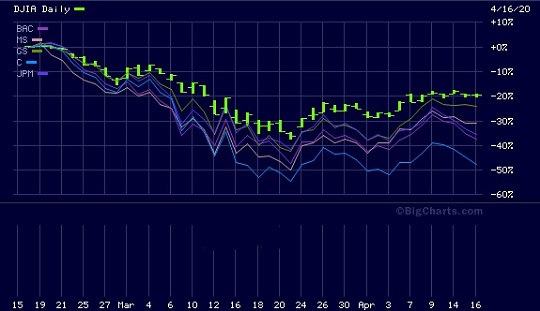Investing in the stock market can be an exciting and profitable venture. While technology stocks have dominated the headlines in recent years, there is also significant potential for growth and value in non-tech stocks.
In this article, we will explore the rise in popularity of non-tech stocks, discuss the criteria for selecting these stocks, and highlight three promising non-tech companies to consider for your investment portfolio.
Introduction to Non-Tech Stocks
In the world of investing, technology companies like Apple and Amazon often steal the spotlight. However, it’s important not to overlook the potential of non-tech stocks. These stocks encompass a wide range of industries beyond technology and offer excellent investment opportunities for diversification and stability in your portfolio.
Non-tech stocks have been gaining popularity as attractive options for long-term investment strategies. This shift can be attributed to factors such as increased market volatility within the tech sector and a desire for more stable investments during uncertain economic times.
Investing in non-tech stocks provides diversification, stability, and exposure to industries that play essential roles in our everyday lives. These stocks offer potential returns while supporting companies that contribute significantly to society.
By considering non-tech stocks alongside technology holdings, investors can balance risks and potentially enhance overall performance. So, don’t underestimate the power of non-tech stocks in building a well-rounded investment portfolio.
Criteria for Selecting Non-Tech Stocks
When it comes to investing in non-tech stocks, it is crucial to establish clear criteria for evaluating companies. This helps investors make informed decisions and mitigate risks associated with their investments. By considering specific factors, one can identify non-tech stocks with strong investment potential.
Financial stability and performance are key aspects to assess when evaluating non-tech companies. It is essential to analyze a company’s financial statements, including the balance sheet, income statement, and cash flow statement.
Evaluating metrics like the debt-to-equity ratio, profit margins, and return on equity provides insights into the company’s financial stability.
Another crucial factor to consider is revenue growth potential. Investors should analyze a company’s revenue growth over recent years and its projected future growth. Identifying companies that demonstrate consistent and sustainable revenue growth indicates a healthy business model.
Dividend history is also an important consideration when selecting non-tech stocks. Investors should look for companies that have a track record of paying dividends consistently. Dividends not only provide additional income but also indicate the company’s confidence in its ability to generate cash flow.
By carefully evaluating these criteria – financial stability and performance, revenue growth potential, and dividend history – investors can make more informed decisions when selecting non-tech stocks. Establishing clear guidelines helps reduce risks while maximizing the potential for successful investments in this sector.
| Factors to Consider When Evaluating Non-Tech Companies |
|---|
| 1. Financial Stability and Performance |
| 2. Revenue Growth Potential |
| 3. Dividend History |
NextEra Energy, Inc.
NextEra Energy, Inc. is a leading US energy company specializing in renewable energy. Their focus on clean energy solutions has established them as an industry leader in sustainability and innovation.
With consistent revenue growth, impressive profitability margins, and attractive dividend yields, NextEra Energy is well-positioned for continued success. They are committed to reducing carbon emissions and driving down costs through ongoing research and development efforts.
Additionally, NextEra Energy actively engages with stakeholders to promote education, environmental conservation, and community development. Overall, NextEra Energy exemplifies corporate responsibility and is at the forefront of the renewable energy sector’s growth potential.
Blackstone Inc.
Blackstone Inc. is a global investment firm that offers alternative investment strategies beyond traditional stocks and bonds. As one of the largest alternative asset managers, Blackstone provides exposure to various asset classes such as private equity, real estate, and credit investments.
With a proven track record of delivering strong returns and mitigating risk through value creation strategies, investing in Blackstone can be a valuable addition to non-tech stock portfolios.
Costco Wholesale Corporation
Costco Wholesale Corporation, a multinational retail giant, has emerged as a successful non-tech company in the competitive market. Operating a chain of membership-only warehouse clubs, Costco has garnered an extensive and dedicated customer base worldwide.
Renowned for its commitment to delivering high-quality products at competitive prices, Costco has established itself as a trusted brand.
With a robust financial performance, Costco consistently generates strong revenues and profits. This success can be attributed to its unique membership model and strategic bulk purchasing approach.
By offering exclusive membership benefits, including access to a wide range of products at wholesale prices, Costco entices customers to become loyal members who frequent their stores.
One of the key factors contributing to Costco’s triumph is its ability to expand globally while adapting and thriving in different markets. The company’s presence extends beyond national boundaries, operating stores in multiple countries.
This global expansion underscores Costco’s adaptability and highlights its capacity to meet the diverse needs and preferences of consumers around the world.
Furthermore, Costco’s unwavering commitment to customer satisfaction sets it apart from its competitors. By prioritizing customer needs and feedback, Costco continuously strives to improve its offerings and enhance the shopping experience for its members.
Additionally, the company employs cost-saving measures that enable them to offer attractive deals without compromising on product quality.
In conclusion, Costco Wholesale Corporation’s success as a non-tech company lies in its ability to provide high-quality products at competitive prices through its membership-based business model.
With an impressive global presence and dedication to customer satisfaction and cost-saving strategies, Costco is well-positioned for continued growth in the non-tech retail sector.
| Key Points |
|---|
| – Membership-only warehouse clubs |
| – High-quality products at competitive prices |
| – Strong financial performance |
| – Global expansion into multiple countries |
| – Commitment to customer satisfaction |
Risks Associated with Non-Tech Stocks
Investing in non-tech stocks comes with risks, particularly related to sector-specific volatility. Healthcare regulatory changes can affect pharmaceutical companies, biotech firms, and healthcare providers. Fluctuating oil prices impact energy stocks, such as NextEra Energy.
Geopolitical events and economic downturns also pose risks for non-tech stocks.
| Risks Associated with Non-Tech Stocks |
|---|
| – Volatility in Specific Sectors or Industries |
| – Potential Risks from Healthcare Regulatory Changes |
| – Impact of Fluctuating Oil Prices on Energy Stocks |
| – Geopolitical Events and their Influence on Non-Tech Stocks |
| – Economic Downturns and their Impact on Non-Tech Companies |
Conclusion and Investment Strategies
Investing in non-tech stocks provides diversification and stability for your portfolio. By selecting these stocks based on financial stability, revenue growth potential, and dividend history, you can make informed decisions.
Diversifying with non-tech stocks balances sector-specific volatility and mitigates risks. Consider adding NextEra Energy, Blackstone Inc., or Costco Wholesale Corporation for promising growth potential and stability.
Thorough research, monitoring market trends, and consulting with a financial advisor are crucial for informed investment decisions.
[lyte id=’aga8lW-6UI4′]






